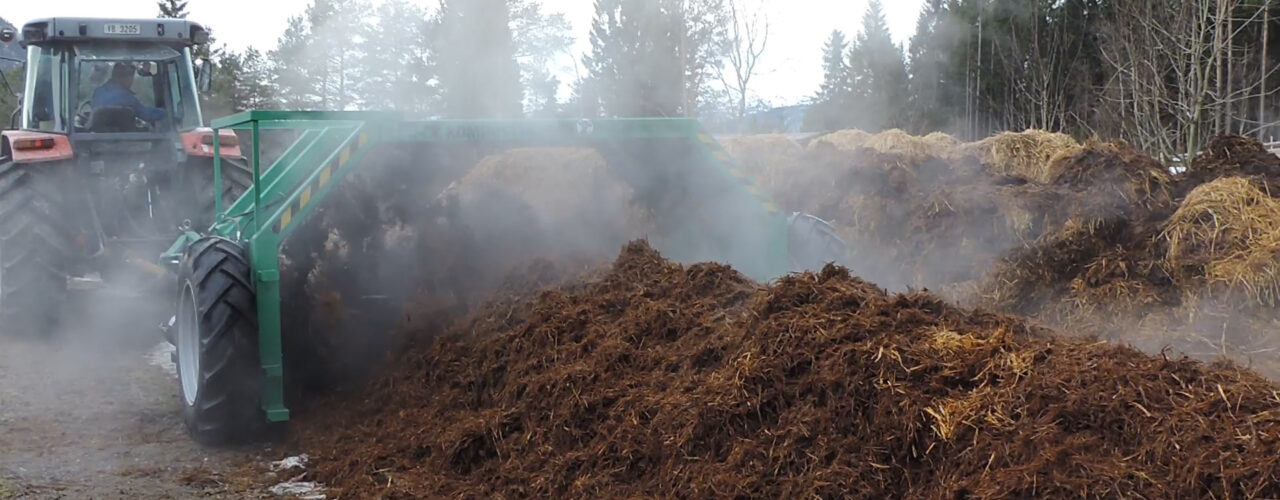
Treatment of solid manure to ensure good fertiliser effect and reduced greenhouse gas emissions
The project studies the effect of two different deep-litter manure treatments on greenhouse gas emissions, carbon loss and fertiliser effect.
- One treatment is windrow composting with frequent turning, the other is a technique where the compost remains undisturbed with a level and tightly packed surface, while maintaining a porous core. The process is known as microbial carbonisation. Thus, two very different environments for microbial decomposition are created from the same source material.
Main goal: To learn more about the agronomical and environmental effects of windrow composting with frequent turning versus microbial carbonisation of organic matter.
Subgoals:
1. Study the suitability of treated cattle deep litter as a growth medium and fertiliser
2. Conduct preliminary studies of GHG emissions from the two treatment methods
3. Study organic matter loss from the two treatment methods
4. Ensure capacity building for subsequent projects
5. Promote communication with relevant user groups about organic matter management
Knowledge generated by this project will also be a valuable contribution to future R&D on the development of peat alternatives for the horticultural industry.
Target groups for this project include farmers, farm advisers, agricultural authorities and farmers’ unions. The results will be compiled in a NORSØK report, in addition to being published on Agropub and in relevant professional journals. Also, a webinar will be held to present project results and enable discussions with users throughout Norway.




